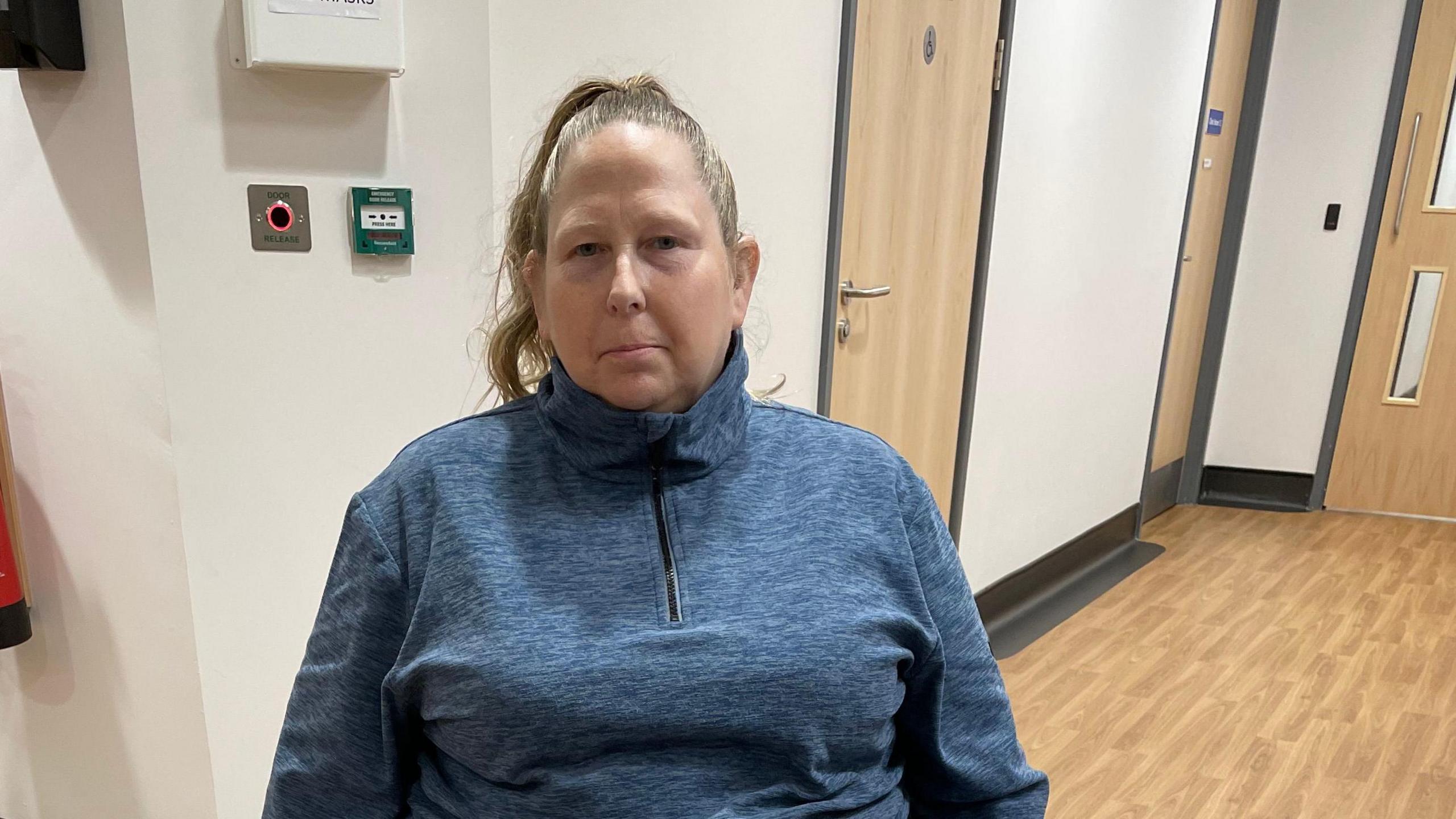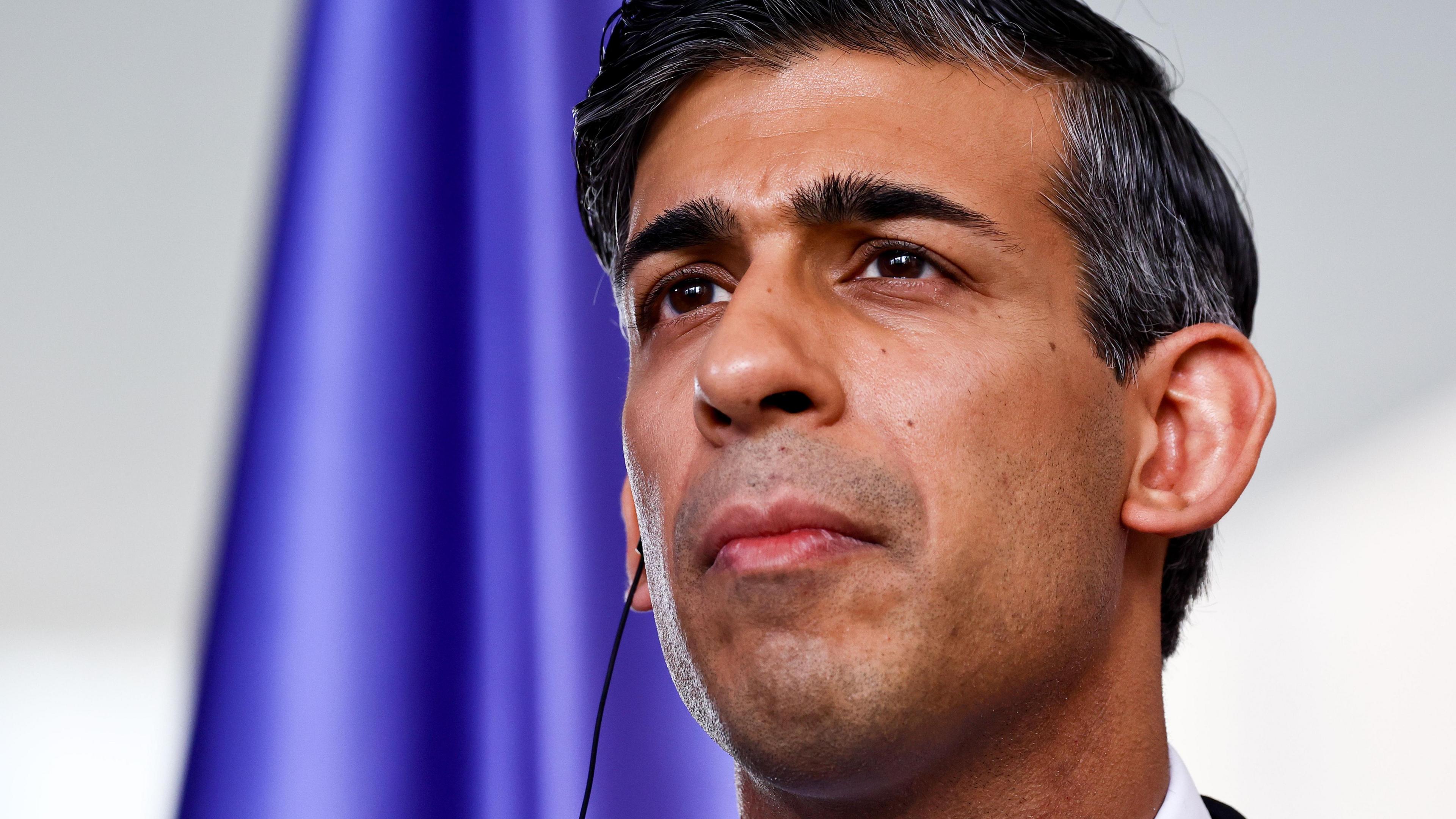'PIP changes could mean I have to stop work'

PIP claimants are worried proposed changes could affect how much money they get
- Published
A woman who relies on PIP payments so she can afford to travel to work is worried proposed benefit changes will limit her independence.
Ministers are considering major changes to personal independence payments (PIP). These include stopping regular cash payments and instead offering claimants one-off grants for things such as home adaptations.
Sally McTiffin, from Stonehouse, who uses a wheelchair, said she wouldn't be able to go work or live in her own home without the benefit. She added she "wouldn't be able" to do her job or go shopping.
Prime Minister Rishi Sunak said the current "disability benefits system isn’t working in the way it was intended" and reform was needed to ensure it is "supporting those who genuinely need it most".
Ms McTiffin's health issues started in 2010 when a back operation "went wrong" and sparked an infection that "ate away" at her spine.
The 52-year-old's ankle collapsed months later and she now requires a wheelchair full-time.
Part of her PIP money is spent on her specially-adapted car, which she uses to travel to work.
"Without the PIP, I wouldn't be able to go to work, I wouldn't be able to do my job, I wouldn't be able to go shopping - everything has a bit of a knock-on."
'PIP isn't easy to get'
Community response lead, Jo Cole, works at G11 Community Hub helping people complete PIP forms.
She says around 40% of people are turned down when they first apply and 70% are approved on appeal.
But, she says the process is long and "mentally draining", which means lots of people do not appeal.
"PIP isn't easy to get and I think that the government has this misconception that anyone who feels a little upset sits at home one day a week is now claiming PIP - that is not it at all," said Mrs Cole.
"PIP is difficult, it can take six months for a claim to go through. I don't think people in government know what real people are going through."

A consultation is currently underway into benefit changes
The government has launched a consultation on proposals to move away from fixed cash benefit system towards tailored support.
Ministers said it is needed after more than 2.6m people of working age are now receiving PIP - with monthly new claims almost doubling since 2019.
Government spending on PIP - a benefit for those who work as well as those who do not - is expected to grow by 52% from 2023-24, to £32.8bn by 2027-28, driven in part by a rise in claimants with mental-health conditions.
Mr Sunak continued: "It is part of our plan to make the benefits system fairer to the taxpayer, better targeted to individual needs and harder to exploit by those who are trying to game the system.
"We’re inviting views from across society to ensure everyone has a chance to make their voices heard and shape our welfare reforms."
Under the proposals, PIP claimants may no longer require a formal diagnosis by a medical expert. It is claimed this make it "easier and quicker" for people with severe or terminal conditions to receive support.
The plans are subject to a 12-week consultation, ending on 23 July.
PIP benefit changes: 'I want to keep my dignity'
- Published30 April 2024
Ministers seek to overhaul disability benefits system
- Published29 April 2024
Related internet articles
Follow BBC Gloucestershire on Facebook, external, X, external and Instagram, external. Send your story ideas to us on email or via WhatsApp on 0800 313 4630.